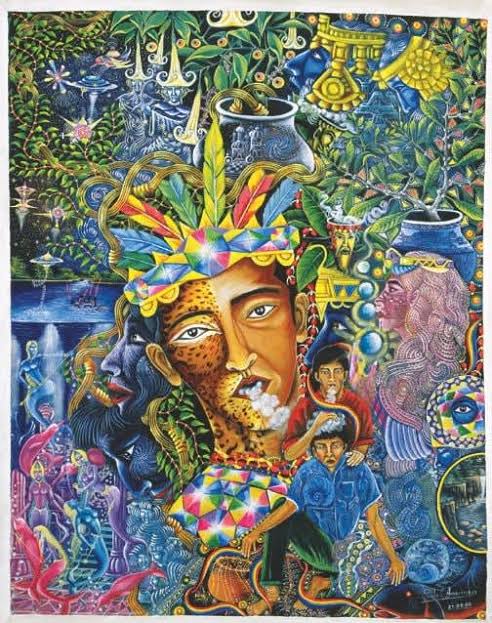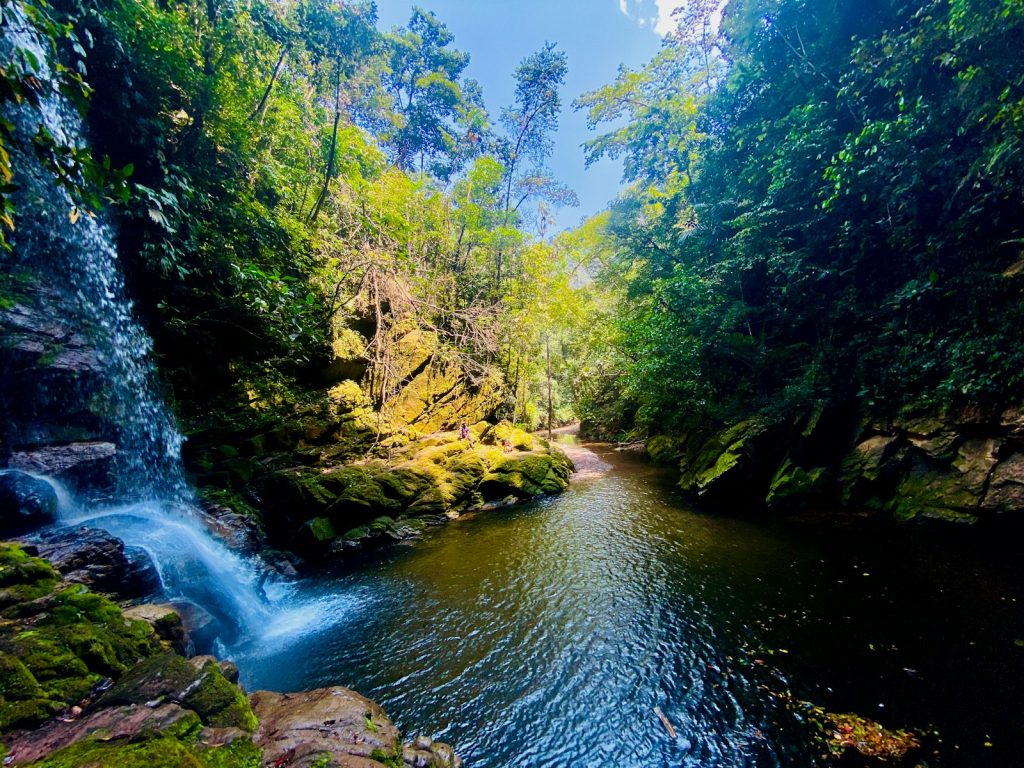Now Reading: “L’abeille n’est pas un insecte, c’est un trésor
-
01
“L’abeille n’est pas un insecte, c’est un trésor
“L’abeille n’est pas un insecte, c’est un trésor
Les abeilles, comme l’a si bien dit Léopold Sédar Senghor, incarnent la beauté et la richesse de notre environnement. Elles ne se contentent pas de polliniser nos fleurs ; elles cultivent également un lien sacré entre l’homme et la nature. Senghor, dans ses écrits, nous rappelle que chaque élément de la nature a une voix et une importance. « Nous ne sommes pas seulement des observateurs de la nature, mais des participants à son harmonie », aurait-il dit, mettant en évidence le rôle vital des abeilles dans notre écosystème. En protégeant ces précieuses pollinisatrices, nous préservons également notre culture, notre agriculture et tout ce que cela représente. Les abeilles sont un véritable trésor, non seulement pour leur production de miel, mais aussi pour leur contribution à la diversité et à la pérennité de notre planète.
1. “La terre est notre mère, prenons-en soin.”
“The earth is our mother, let us take care of her.”
– This reflects the importance of environmental stewardship in Senegal, where agriculture is vital. Traditional dishes like Thieboudienne, a fish and rice meal, highlight the connection between the land and the food we cherish.
2. “Le ciel est notre plafond, et les étoiles sont nos rêves.”
“The sky is our ceiling, and the stars are our dreams.”
– This proverb emphasizes aspirations in a context where the landscape is integral to cultural identity. Senegal’s national soup, Soupe Kandia, uses local ingredients, symbolizing dreams grounded in nature.
3. “L’eau est la vie, ne la gaspillons pas.”
“Water is life, let us not waste it.”
– Climate change has made water preservation crucial in Senegal. The national dish Yassa, made with marinated chicken or fish, is a reminder of resource usage that respects the environment.
4. “Un arbre qui tombe fait plus de bruit qu’une forêt qui pousse.”
“A falling tree makes more noise than a growing forest.”
– This illustrates how impactful changes can go unnoticed. The growth of sustainable farming practices in Senegal, as seen in dishes like Mafe (peanut soup), encourages us to reflect on nurturing progress.
5. “Le savant pêcheur est celui qui connaît le courant.”
“The wise fisherman is the one who knows the current.”
– A call to adapt to climate changes affecting fishing. Senegal’s fishing exports rely on knowledge of waters and contribute to culinary staples, reinforcing food security and sustainability.
6. “La solidarité est la force des pauvres.”
“Solidarity is the strength of the poor.”
– In the face of climate challenges, community resilience shines. Sharing meals like Ceebu Jen fosters unity among Senegalese, showcasing the power of collective action in food culture.
7. “L’abeille n’est pas un insecte, c’est un trésor.”
“The bee is not an insect, it is a treasure.”
– Highlighting the vital ecological role of pollinators. Honey, used in many Senegalese dishes, is a symbol of the interconnectedness of nature and culinary heritage.
8. “Celui qui ne sait pas où il va, n’a pas besoin de vent.”
“He who does not know where he is going does not need wind.”
– This encourages a direction in climate resilience and food sustainability. Dishes like Ragoût de Poisson reflect resourcefulness, rooted in awareness of seasonal availability.
9. “Le vent ne porte pas les paroles de l’arbre à sa destination.”
“The wind does not carry the words of the tree to its destination.”
– Suggesting that our voices must be active. Advocacy for climate justice in Senegal, mirrored in the communal act of cooking, instills awareness and pride in local food systems.
10. “On ne sauve pas un village tout seul.”
“You do not save a village alone.”
– The essence of collaboration in facing climate issues is crucial. Local communal meals serve as a celebration of shared responsibility, central to meals like Lakh (millet porridge).
11. “La fleur qui s’épanouit, c’est le reflet d’une terre bien cultivée.”
“The flower that blooms is a reflection of well-tended land.”
– A metaphor for climate action and sustainable practices. Senegal’s culinary landscape, with dishes like Bissap (hibiscus drink), showcases the beauty of cultivating our environment thoughtfully.
12. “Un cœur ouvert est plus fort qu’une armée.”
“An open heart is stronger than an army.”
– This reflects community spirit in ecological initiatives. The preparation of traditional meals brings together families and reinforces connections vital for addressing climate resilience.
13. “L’arbre ne porte pas de fruits sans racines.”
“A tree bears no fruit without roots.”
– Emphasizing the importance of heritage in cultural identity. The use of local ingredients in dishes like Pâtes au poisson strengthens ties to both land and tradition, affirming our responsibility to the future.
14. “Seul on va plus vite, ensemble on va plus loin.”
“Alone we go faster, together we go further.”
– Collaboration in the fight against climate change is vital. Traditional cooking practices, such as communal preparation of meals, foster cooperation and sustainable practices.
15. “La sagesse des ancêtres est un varan caché.”
“The wisdom of ancestors is a hidden monitor.”
– Encouraging respect for traditional knowledge in sustainable living. Embracing age-old recipes, like Domoda (peanut stew), connects contemporary action with ancestral wisdom.
16. “Qui cherche la paix cultive la terre.”
“He who seeks peace cultivates the land.”
– A reminder of the peace found in nurturing the earth. Foods like Fufu highlight the importance of local agriculture and the harmony that sustains community and climate wellness.
17. “Celui qui cuit la bouillie apprend à s’occuper du feu.”
“He who cooks the porridge learns to tend the fire.”
– The importance of experience in skill development reminds us of sustainable food practices, as seen in Senegalese dishes that utilize local fireside cooking techniques.
18. “Un seul doigt ne peut pas attraper une puce.”
“One finger cannot catch a flea.”
– Unity is essential in tackling climate challenges. Meal-sharing practices and dishes like Kédjenou promote connectedness and mutual support in community climate actions.
19. “La mer ne se joue pas de la terre.”
“The sea does not play with the land.”
– A reflection on the delicate balance of ecosystems. The fishing and coastal traditions that influence Senegalese cooking, such as Mataba (a rice dish), underline the significance of protecting both land and sea.
20. “L’harmonie de la nature est notre richesse.”
“The harmony of nature is our wealth.”
– Celebrating the synergy between nature and culinary practices, Senegal’s diverse dishes are a testament to the richness we must preserve, binding us to our environment and each other.







